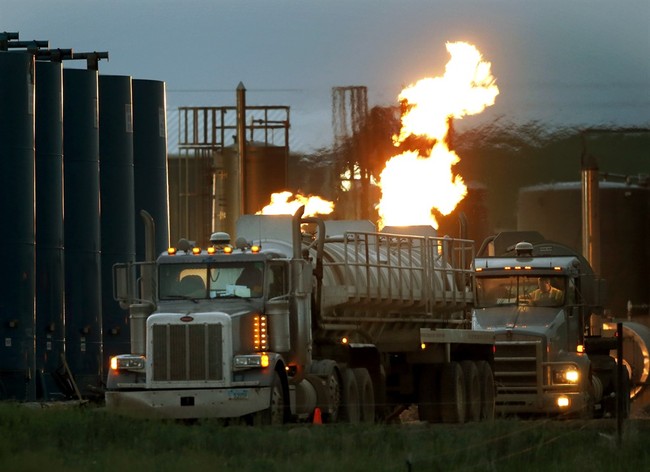
[ad_1]

(Robert Morton is a media, financial, and policy analyst whose research expertise includes Hollywood, the credit markets, and COVID-19 data.)
The men and women of the commercial trucking industry are indispensable. Seventy-three percent of the country’s freight (by weight) is carried by these hard-working Americans, either as independent owner-operators or as employees of commercial fleets.
Yet this backbone of America is taken for granted. We are so accustomed to seeing 18-wheelers on our highways that they become invisible. Without them, there is no supply chain. Without them, there are no supplies. Without them, our nation is crippled.
America must do more to support them just as one company, and its fleet health and safety technology, has been supporting these workers since 2002.
Zonar Systems was founded on a simple idea: electronically verified inspections could revolutionize how federally mandated pre- and post-trip inspections are conducted. By doing so, the roads would be made safer for everyone, and fleets would minimize their risk of on-the-road breakdowns.
Prior to Zonar’s Electronically Verified Inspection Reports (EVIR), inspections were done with paper and pencil. Inspections might be rushed, defects might be missed, and compliance was put at risk along with the driving public.
“EVIR is an innovative inspection tool in commercial trucking, pupil transportation, and vocational fleet management,” says Fred Fakkema, Zonar’s VP of Safety & Compliance, who served 25 years with the Washington State Patrol prior to arriving at Zonar.
“Safety is every trucker’s and every fleet’s primary concern. The pre- and post-trip inspection process was created by the Federal Motor Carrier Safety Administration to be thorough, to ensure the public has confidence trucks are safe to operate.”
This electronic process reduces inspection time by a third or more, reduces errors, and digitizes records.
• Inspection tags are placed on each inspection zone.
• A driver will scan each tag with a handheld scanner or their mobile phone. • Defects are marked, notes added and photos captured.
• Each inspection zone is stamped by time and date.
• When the inspection is complete, drivers upload the results into a fleet management platform.
• Repair requests are immediately forwarded to maintenance and fleet managers.
The forwarding process also reduces the likelihood of a repair request being incorrectly filled out, getting forgotten in a request box, or just plain lost in the request chain.
The paper-based process is tedious. If a truck is located outside and the weather is foul, a driver might inadvertently rush the inspection and/or miss a defect. There’s no way for maintenance staff or managers to know if the inspection was properly performed.
That’s just the safety part of the equation. Zonar and EVIR also reduce expenses in the immediate and long term.
Fakkema asks us to imagine what would happen if a pencil-whipped inspection misses a defect that puts a truck out of service via breakdown or from a roadside inspection.
“Inspectors have authority to place a truck out of service if certain equipment defects are discovered,” Fakkema says. “If the pre-trip inspection isn’t performed properly, that driver and employer lose significant revenue, and potentially harms an end-users business.”
A truck that is placed out of service will not make its delivery on time or possibly at all. If it carries refrigerated products, those products may spoil by the time the truck is released and arrives at its destination. Delays in delivery can wreak havoc with a distributor’s schedule and its customers, and ultimately the end-user may experience a temporary shortage of product.
“So now everyone in the supply chain is unhappy with everyone else, and it all comes back to the fact that the driver did not do a proper inspection or correct a defect. Besides the time and money to correct the out-of-service defect, a possible citation, it could impact the driver’s employment and may have a negative impact on his family.”
Other Savings
There are savings in the elimination of storage needs for paper inspection records. Electronic inspection digital record retention complies with regulatory requirements, eliminating the need to store paper copies.
Time is money in trucking, and every vehicle that’s off the road isn’t earning money. Repair requests can be immediately accessed and addressed, reducing vehicle downtime, and maintaining fleet health on a minute-by-minute basis.
Helping Truckers Matters
“Trucking is a unique and rewarding occupation. It’s demanding. It requires commitment and dedication. There are a ton of rules and regulations to navigate and it can feel overwhelming. We owe it to these people to do everything possible to make their jobs safer and easier,” Fakkema says.
“Working for a technology company like Zonar, that has the trucker’s and the public’s safety as a priority, is something to be proud of. We’re helping to keep America moving and supporting the people that are doing it while keeping our roadways safe.”
[ad_2]
Source link